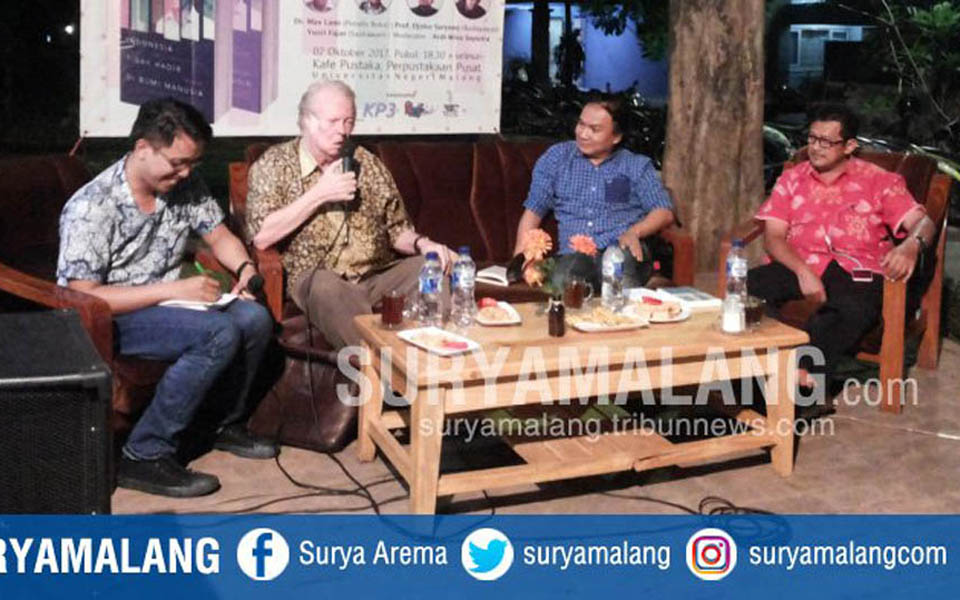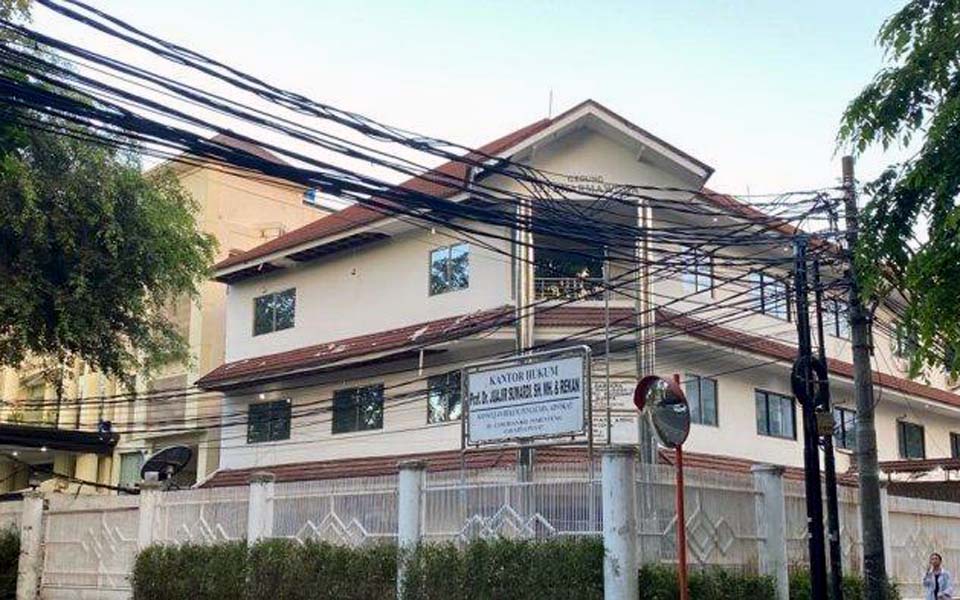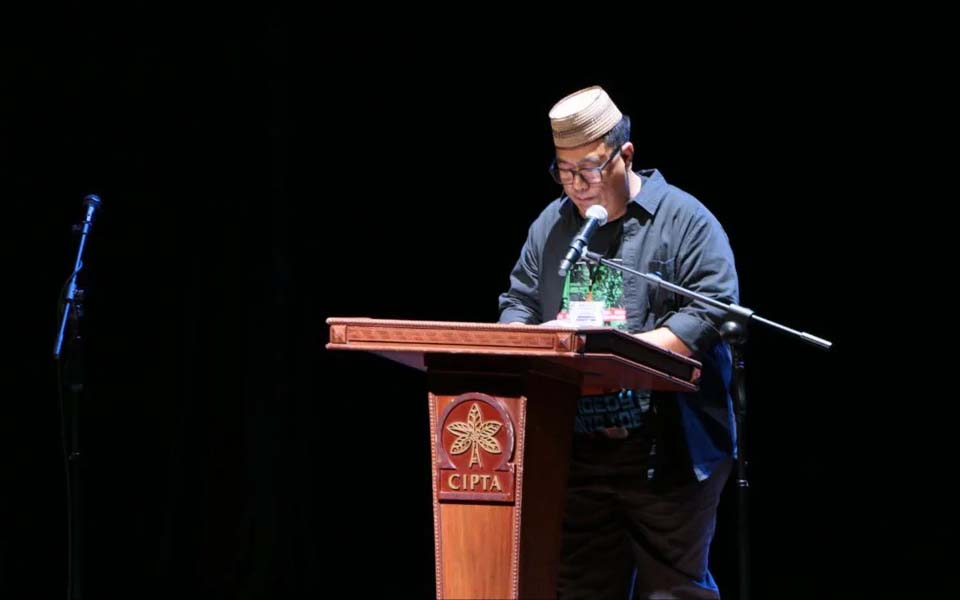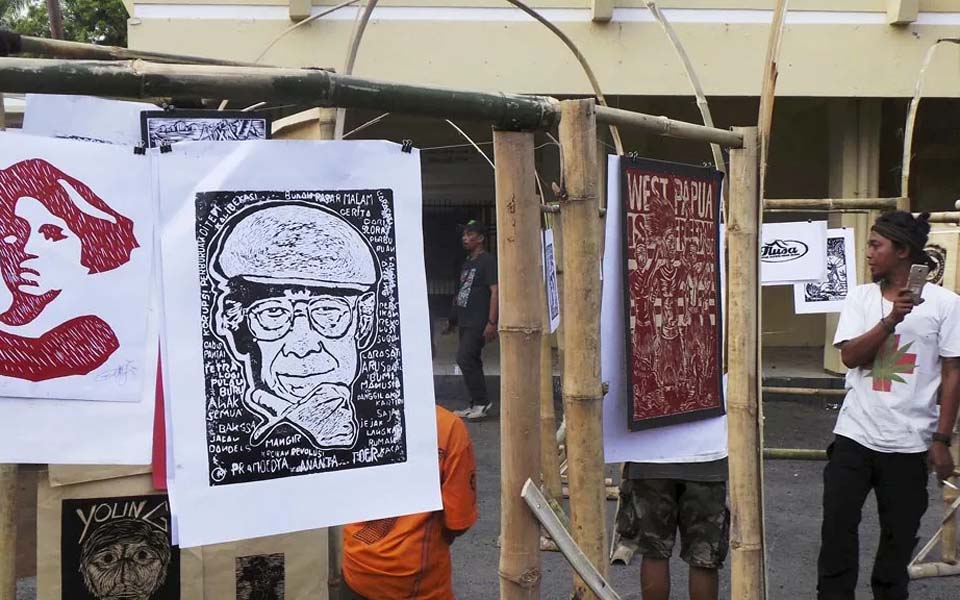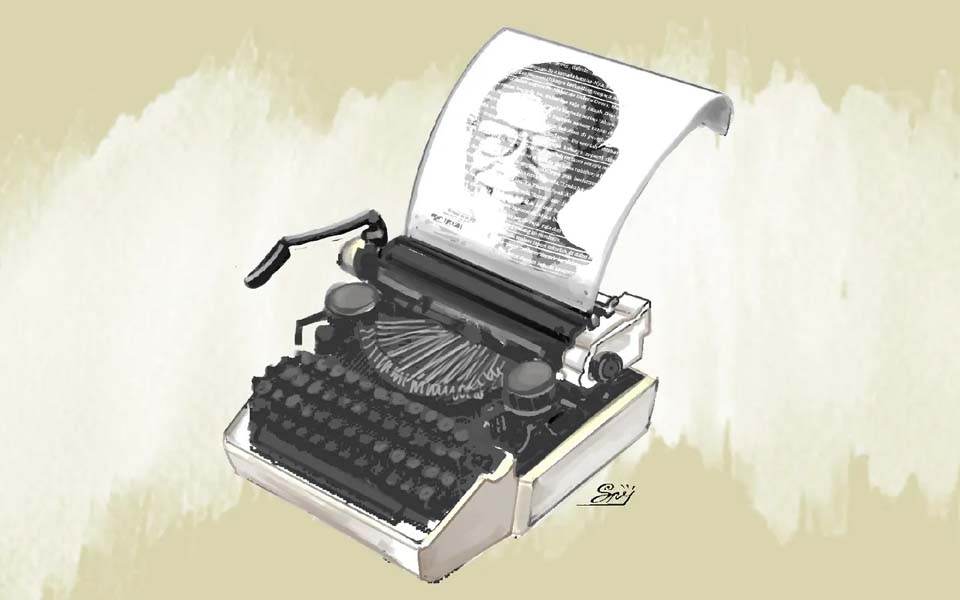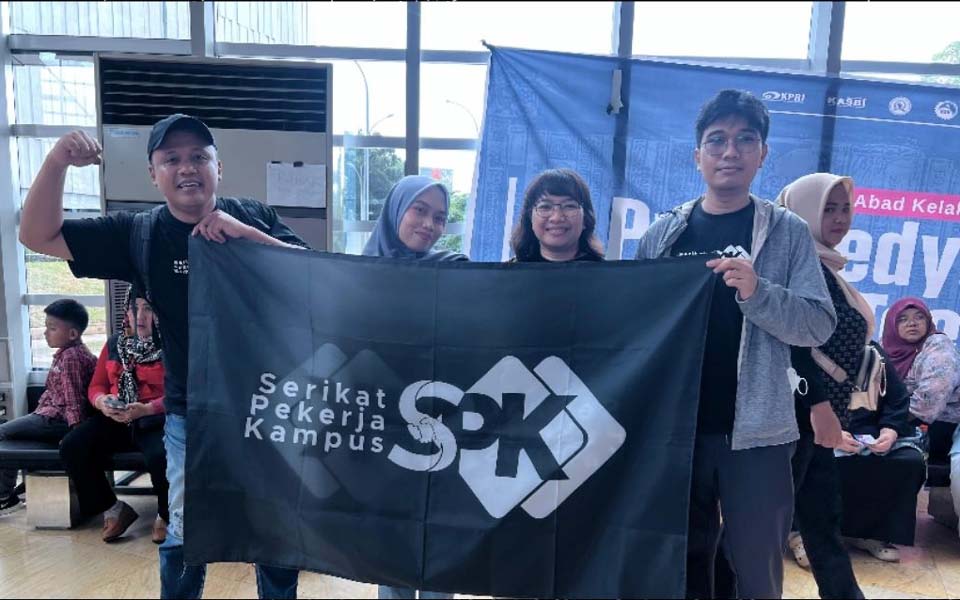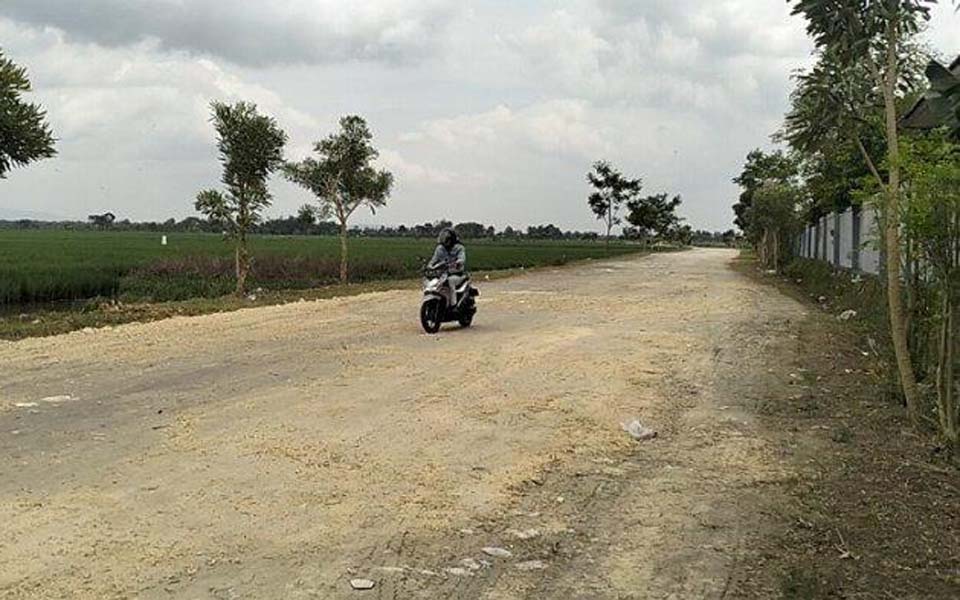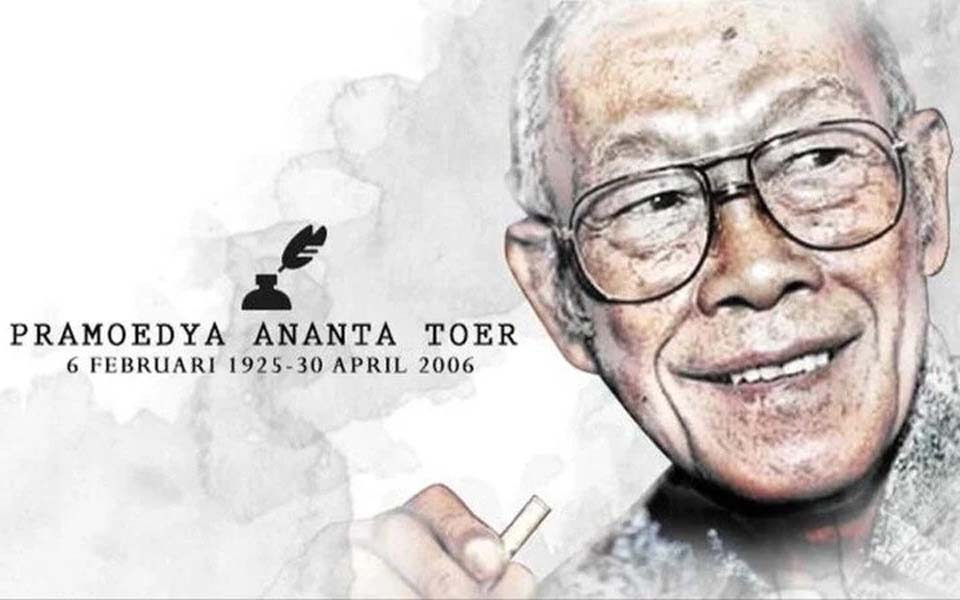Klojen – The name Pramoedya Ananta Toer, Indonesia’s foremost writer who was born in 1925 and died in 2006, still resonates to this day, not just in Indonesia but internationally, bridging the cultural divide.
Can however Indonesia’s millennial generation, whose ‘best friends’ are their gadgets, understand a figure like Pramoedya, the only Indonesian author to become a Nobel Prize candidate for literature.
Held on the grounds of the Malang State University (UNM) Library Cafe in East Java, a discussion with Max Lane analysed Pramoedya and his Buru Quartet – a series of four novels that have gained acclaim throughout the world – was held on the evening of Monday September 2.
It was Max Lane, born in Australia in 1951, who made Pramoedya’s name known to the public and readers throughout the world. Lane translated the Buru Quartet – This Earth of Mankind (Bumi Manusia), Child of All Nations (Anak Semua Bangsa), Footsteps (Jejak Langkah) and House of Glass (Rumah Kaca) – from Indonesian to English.
The fraternal discussion was a dissertation of Lane’s new book titled Indonesia is not Present on this Earth of Mankind (Indonesia Tidak Hadir di Bumi Manusia). In addition to Lane, also speaking at the event was author Yusri Fajar, cultural observer Djoko Saryono and moderator Ardi Wina Saputra.
“I translated them because I loved his works (Pramoedya). Reading his works has made me contemplate upon many things. Until it gave birth to this book (Indonesia Tidak Hadir di Bumi Manusia), said Lane in his introduction.
Following the discussion, Surya Malang invited Lane to talk about the importance of Pramoedya’s works for the millennial generation.
According to Lane, from reading Pramoedya’s Buru Quartet, readers can contemplate upon exactly what it is to be an Indonesian.
“My hope is that Pram’s books will be read by the younger generation. They must think about the content, not just enjoy the (fictional) stories”, said Lane.
According to Lane, today’s younger generation has become divorced from literate. There is no culture of reading among the activities of youth today. This is caused by the lack of literary studies in class rooms.
“Since the 1970s the government has removed literary studies from primary and high-school levels. All there is now is language lessons”, he explained.
Now, it was starting from this premise that he wrote the book about Pramoedya, so that the millennial generation can get to know Pramoedya and to inflame interest in reading literature.
Lane related how even though he translated and has read the Buru Quartet numerous times, he still thinks about many of the issues contained in the works. One of the things that still sticks in his mind is that in the thousands of pages that make up the Buru Quartet there is no mention of the word Indonesia.
Yet the Buru Quartet is novel about the causes behind the formation of the country that would later and until now is called Indonesia. The main plot in these works is a story about an indigenous man named Minke in the period before and after 1900.
The books not only present a story about the colonial laws used to shackle the indigenous people of the Dutch East Indies, but it is also spiced up with a story of the love and romance between Minke and a mixed-blood girl name Annelise.
Cultural observer Djoko Saryono meanwhile said that it is fitting for the millennial generation to read and contemplate Pramoedya’s workers because they contain multiple layers of meaning.
“These works are like an onion, when we peal it we find another layer underneath. In his works, Pramoedya is present as a journalist, a man of literature and a scientist. These things make his works worldly and they should be read by the younger generation”, explained Saryono.
Notes
Dr Max Lane introduced the English-speaking world to the celebrated revolutionary Indonesian author Pramoedya Ananta Toer, who was imprisoned by Suharto for a decade on the Maluku island of Buru, by translating his classic Buru Quartet novels, starting with Bumi Manusia (This Earth of Mankind) in 1980. As a result, Lane, who at the time worked as junior diplomat with the Australian Embassy in Indonesia, was forced to return to Australia in 1981.
[Translated by James Balowski. The original title of the article was Upaya Max Lane Mendekatkan Sastra dan Pramoedya Ananta Toer kepada Generasi Milenial.]
- Max Lane’s Blog – Commentary and analysis on the history, contemporary politics and culture of Indonesian and its relationships with Australia and the world.





